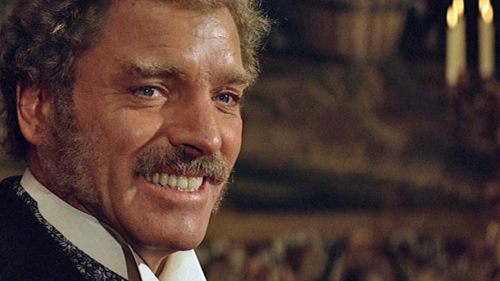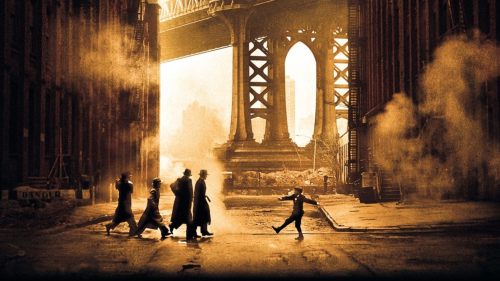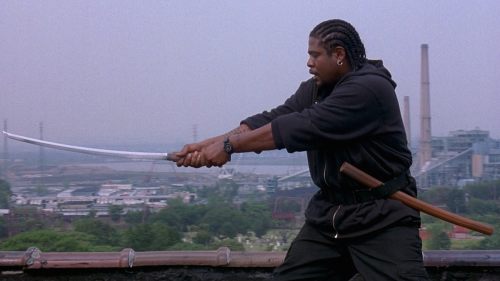A Case For Greatness: CROUPIER
Classics never die, but they seldom get replaced. Cinema is populated with enduring, venerated works of art that deservedly adorn list after list, but those lists are rarely updated, and less often expanded to include new, equally worthy entries. Organizations that give out annual awards are constrained not only by the limitations of formatting, but perspective - they can’t anticipate which film will survive the buzz of its initial acclaim or success and become part of the cultural firmament. And then there are just certain films or even genres that too infrequently receive the critical attention they deserve, are too obscure to break through to bigger audiences, or just aren’t taken seriously enough to merit consideration alongside the ones we “all” already know we love or respect. A Case For Greatness, this series, tries to argue for, and to champion, forgotten or underappreciated films in a variety of genres that may be worthy of being called “classics.”
As a moviegoer, synchronicity can be a remarkable thing. Seeing films that vaguely or explicitly relate to one another in rapid succession can have a tremendous impact on us that we may not recognize until much later, if ever. Case in point: it was not until this week, when I watched Croupier for the first time in probably 15 years, that I realized how British (or more-accurately, British-themed) films of the late 1990s changed my understanding of film and film criticism, and helped shape so many of my sensibilities as a viewer, then and now. Even with a breakout performance by Clive Owen, the fact that Mike Hodges’ film is often forgotten among the ranks of films like Trainspotting, Velvet Goldmine, and The Limey, much less lesser entries like Sliding Doors and Wonderland, comes as little surprise, but it remains a pitch black - and for me, formative - portrait of creativity and compromise filtered through the challenge of deciding whether to accept or refute being told by the world who we are as people.
Owen, who hadn’t yet appeared as a roguish, mysterious valet in Robert Altman’s Gosford Park, plays Jack Manfred, a struggling author who receives an unexpected call from his father with a job opportunity: work at the Golden Lion casino in London as a croupier. Possessing “the hands of a conjurer… or a card sharp,” he not only gets the job but quickly proves to be a valuable asset thanks both to his unflappable and absolute understanding of how to win by cheating, and refusal to allow funny business at his tables. Initially impressed by the handsome salary he receives, Jack’s department-store detective girlfriend Marion (Gina McKee) soon grows to dislike the changes she sees in his demeanor, not to mention the poisonous inspiration it provides for his writing. But when a needy gambler named Jani (Alex Kingston) befriends him despite strict rules forbidding fraternization with the “punters,” Jack is forced to choose between his obligations to his job (and his girlfriend) and a risky scheme that could earn him some serious cash - or a world of trouble if it fails.
Jack’s experiences exist on two planes, the physical and the literary; his running commentary (expressed in voiceover) writes and combines the truth of his experiences with the fiction he creates to escape it, first in his head and eventually on paper in a misanthropic novel that Marion immediately hates. Having experienced an unspecific past on both sides of the gambling table's green felt, Jack knows that the healthiest avenue to pursue is one far away from the vagaries of gambling, but he resents his own self-awareness, and reconfigures that resentment into a sort of sociological detachment that only festers in his soul the more he impresses his boss and the punters alike with his dexterity and professionalism. There’s something deeply recognizable among a certain generation of young people dramatizing their lives; mind you, his actually happens to be intriguing, but the movie’s masterstroke is remaining interested in how that affects the author psychologically while it chronicles the outward escalation of his contempt for the job he was born to do.
Writer Paul Mayersberg’s previous credits include The Man Who Fell To Earth and Merry Christmas Mr. Lawrence, stories that approach their subjects in nontraditional, even dreamlike ways. In Croupier, he depicts Jack’s life as a repetitive stream of shifts at the casino, interrupted only by Marion’s increasing exasperation at its effect on the career she wishes he’d pursue, writing, and eventually, on their relationship. You can feel his initial resistance to the job even - or maybe especially - in the job interview scenes, where he challenges his boss as he answers his questions, and then slowly dissolve as he re-experiences the high of controlling the wins and losses of the people who sit at his table. By the time he cheats on Marion with a fellow croupier that he tells he “despises” the job, he’s already succumbed to an addiction that he may indeed hate, but it’s far too powerful for him to escape, or give up.
But Jack’s melodramatic narcissism, and that addiction, obscure what he - and by extension, the viewer - fails to realize until it’s too late: he’s been written into someone else’s story. His father’s role in the film seems so small as to be completely unobtrusive, a pest reminding him and us of his past, but the eventual payoff to the plan he agrees to participate in is a culmination of everything he is, for better and especially for worse, manipulated by a person who knows him better than he knows himself - and who made him that way. Jack considers his refusal to gamble a noble sacrifice, but he’s been led to it anyway, not for money but the electric charge of risk itself, and in so doing compromised the creativity (rather than destruction) that embodies escaping his upbringing and his father’s influence.
Directed by Mike Hodge, whose debut (!) was the British crime classic Get Carter, Croupier showcases a point of view that exudes a refined kind of anger - the maturity to recognize a young man’s self-destructive path without offering a way out. Polished and vital, what would be the director’s second-to-last film fits perfectly between Trainspotting and The Limey as a trilogy of late ‘90s stories that target different times in one’s life to examine the divide between our essential nature as individuals and the fundamental choice we have to yield or resist that nature. Ever the wordsmith, Jack skillfully expresses his own philosophy early in the film - hang on tightly, let go lightly - but Croupier reminds us that paths can be chosen for us, often when we think we’re doing the opposite, and the best we can hope for is to discover the difference before we do too much damage - to others and the world around us, but ultimately and especially to ourselves.



